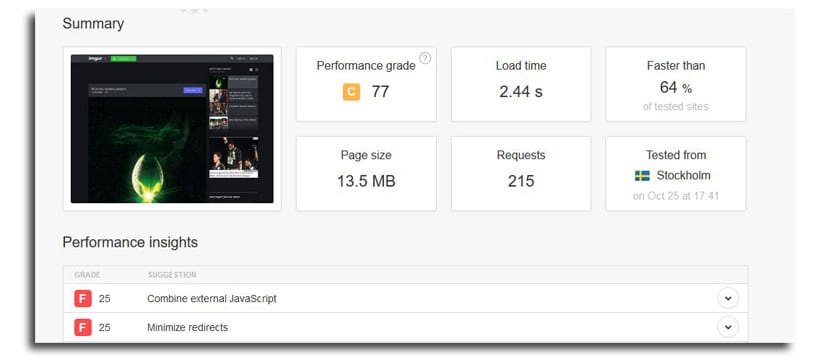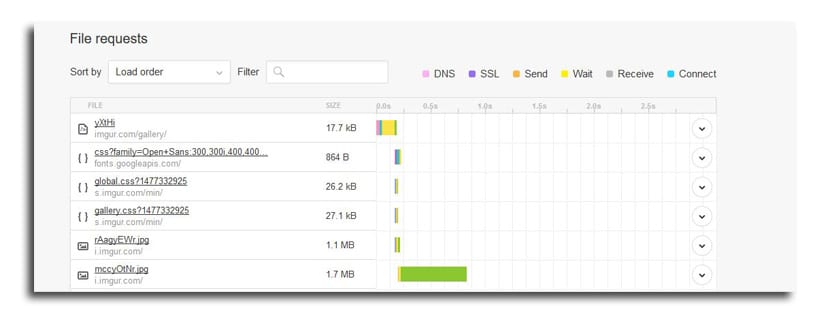
Although we are not a web developer, we may be interested how much can the images weigh hosted on a website. For example, we want to download all the photos from a website that we want to use for a web job and the goal is to have them synced from Evernote. As we have a 60MB limit per month for free accounts, it is vital to know how much it can "cost" to load the entire web page.
That is why we are going to show you a simple and versatile way to know how many megabytes you are going to upload to Evernote or, merely, you want to know the image load of your website in order to optimize the images it contains.
For those of you who are web developers or are just starting out to take the first steps, the longer it takes to load a website, the fewer visits, apart from the fact that Google penalizes the weight of a website by giving it worse positions in the search results.
How to know how much the images on a website weigh
- The first is know the url of the web that we want to weigh
- We're going to tools.pingdom.com/fpt/
- Now we paste the URL from the web that we want to know the weight

- After the test, it will give us the precise information of the full weight of our website
- We have the option to scroll down to find the section "File request", where we find each of the images that the web hosts with its corresponding weight

- Right here you can even click on the image to see the photograph if you wish
There are more ways to power know the weight of a web, but if you have a free Evernote plan, you can get out of the doubt so you don't run out of those 60MB that allow you to upload information and have all your notes or articles synced between two devices in that great application.